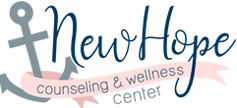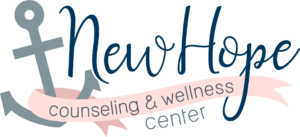For many, college can be an exciting time, but for those students who suffer from an eating disorder, this new college experience comes with a lot of personal responsibility. Because for many, college can also be a triggering experience. The increase in schoolwork, social activities, and financial responsibilities can reveal and exacerbate eating disorders, anxiety disorders, mental issues, problems regulating emotions or navigating trauma, and more.
If you suspect that you are coping with an eating disorder, understanding your risk factors is the first step you can take toward recovery. If you are struggling and not under professional care, it’s important to seek help immediately.
Your eating disorder does not have to control your life or your college experience!
What Is an Eating Disorder?
An eating disorder is a serious mental illness that in time, will manifest itself physically. Because those with EDs may not view their condition as a health concern, eating disorders can be difficult to identify and treat. Common eating disorders include anorexia nervosa, bulimia nervosa, binge eating disorder, avoidant restrictive food intake disorder, and orthorexia. The physical symptoms of an ED can include:
- Fluctuating weight
- Missing a period
- Difficulties maintaining body temperature
- Calluses or cuts on fingers, knuckles
- Enamel erosion
- Brittle hair and nails, sallow skin
- Swollen salivary glands (under the tongue and behind the teeth/under the ear)
When Is Dieting a Problem?
Eating disorders generally manifest between the ages of 18 and 21. During this period of development and transition, many students may experiment with dieting, but an astounding 35% of these students progress to unhealthy dieting and disordered eating.
Did you know that eating disorders have the second highest mortality rate of all mental illnesses next to the current opioid epidemic?
When left untreated, an eating disorder can lead to serious and life-threatening health issues. So, where do we draw the line between a healthy diet and an eating disorder? While we can receive adequate nutrition from a healthy diet, an eating disorder deprives us of nutrition, leaving us feeling constantly tired, cold, weak, and sick. If you struggle to eat in front of others or are constantly thinking about food, these could be signs your dieting has crossed into disordered eating.
How to Cope With Your Eating Disorder at College
For new students, there are new friends, new schedules, and for some – the chance for a new identity, complete with new pressures and insecurities. These new stresses can result in students trying to exercise control by engaging in restrictive dieting or purging behavior.
For those who are suffering from an eating disorder, it’s important to be proactive in your recovery process at college. Being aware of your risk factors can help you reach your full potential and make the most of one of the most exciting times of your life.
Identify Your Eating Disorder Triggers
A trigger is any stimulus that initiates an intense or uncomfortable response. In the case of an eating disorder, a trigger will elicit the response of disordered behavior, such as the restriction of certain foods, purging, over-exercising, or abusing laxatives and other drugs.
While you may not be able to control your triggers, you do not have to lose control of your recovery.
Be aware of the situations, people, and feelings that trigger negative emotions. Common triggers include grocery shopping, comments about weight loss, stress about school, fashion trends, and social media expectations. Maybe a family member is known to make “well-meaning” comments, or someone’s social media posts and “body positivity” is beginning to feel destructive to your progress.
Once we identify our triggers, we are more capable of resisting the disordered thoughts and behaviors that come after. It is possible to respond in a way that supports our growth.
Make Proper Nourishment a Priority in College
While student involvement is very important for those suffering from an eating disorder, if you are involved in too much (or over-involved), you may find yourself being “too busy” to eat or too distracted or stressed to eat properly. This could result in missing meals.
Added to that, social pressure to drink excessively at school can be both difficult to manage and very dangerous when you have an eating disorder. To that end, sometimes students will restrict their calorie intake throughout the day in order to avoid weight gain from drinking alcoholic beverages later on.
Maintaining your ideal calorie intake with nourishing foods is essential.
Find Other Nourishing Ways to Cope with Your Eating Disorder
Whether you are currently suffering from an eating disorder, you have previously, or you are worried you are at risk, recovery is best understood as a constant process. Disordered thoughts and behaviors can feel impossible to overcome, but with our triggers in mind, we can deconstruct those negative associations and replace them with positive behaviors.
Since eating disorders can feel especially isolating, it’s important to make use of available support systems. Talk to friends, family, a trusted teacher, or a coach to stay accountable. Utilize your school’s mental health or counseling services. Finding a healthy way to cope is all about exploring everything that your full self has to offer!
- Join an on-campus support group (if available).
- Pick up that hobby you’ve always wanted to try, like knitting, playing the guitar, or painting.
- Practice a mindfulness activity; take a long walk, practice yoga, or stretch!
- Do something just for yourself; take a bath, watch your comfort show, or paint your nails.
- Document your journey; write in a journal, take pictures, and make an effort to connect with those in your support system. It may seem overwhelming at times, but these connections (to yourself and with others) can help you in active recovery.
If you think you may have an eating disorder or are at risk of an eating disorder at college, there is hope! You can have control over your life. We provide one-on-one counseling, and then our team of specialists will develop a personalized treatment plan for you. You are not alone! Contact us today.








